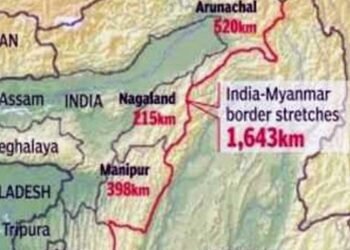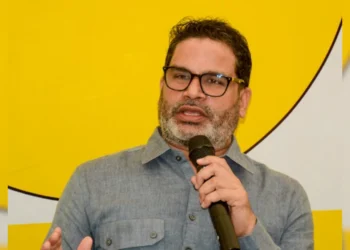The Delhi LG approves the expansion of special courts’ scope, strengthening legal accountability for ex-lawmakers. Cases involving former MPs and MLAs under CPCR and POCSO will now be processed faster through special courts in Delhi.
BY PC Bureau
October 15: In a move to strengthen the judicial mechanism for cases involving public representatives, the three designated Special Courts established to handle cases against Members of Parliament (MPs) and Members of Legislative Assemblies (MLAs) under the Commissions for Protection of Child Rights (CPCR) Act, 2005 and the Protection of Children from Sexual Offences (POCSO) Act, 2012, will now also hear cases against former MPs and former MLAs.
Delhi Lieutenant Governor VK Saxena has approved a proposal sent by Chief Minister Rekha Gupta to expand the ambit of these courts. The decision extends the jurisdiction of the existing Special Courts at Rouse Avenue Court Complex, Delhi.
READ: What Are Green Crackers? SC Permits Use in NCR This Diwal
The designated courts are as follows:
-
Court of Special Judge (PC Act) (CBI)-09, Rouse Avenue Court Complex, Delhi.
-
Court of Special Judge (PC Act) (CBI)-23, Rouse Avenue Court Complex, Delhi.
-
Court of Special Judge (PC Act) (CBI)-24, Rouse Avenue Court Complex, Delhi.
Earlier, in July 2023, the LG had approved the setting up of three such Special Courts to exclusively deal with cases against sitting MPs and MLAs under the CPCR and POCSO Acts. The notification followed directions issued by the Delhi High Court in 2020, which had called for the establishment of dedicated courts for these categories of offences. However, the previous administration had delayed its implementation for over three years.
The current proposal for expanding the jurisdiction of these courts to include ex-lawmakers was moved by the Department of Women and Child Development (WCD) and vetted by the Law Department. The approval has been granted under Section 25 of the CPCR Act, 2005, and Section 28 of the POCSO Act, 2012, both of which empower the State Government, with the concurrence of the Chief Justice of the High Court, to designate Special Courts for the speedy trial of offences against children or violations of child rights.
These three courts are in addition to eight other Special Courts already functioning in Delhi for trying offences related to children’s rights and cases under the POCSO Act.
Section 28(1) of the POCSO Act mandates that, for the purpose of ensuring speedy trials, the State Government—after consultation with the Chief Justice of the High Court—must designate a Sessions Court in each district as a Special Court for offences under the Act. Similarly, Section 25 of the CPCR Act provides for the establishment of dedicated courts for the trial of offences against children and child rights violations, except in cases where a Special Court has already been constituted under any other existing law.
READ: PK Rules Out Cotnesting Poll, Calls NDA in ‘Complete Chaos’










